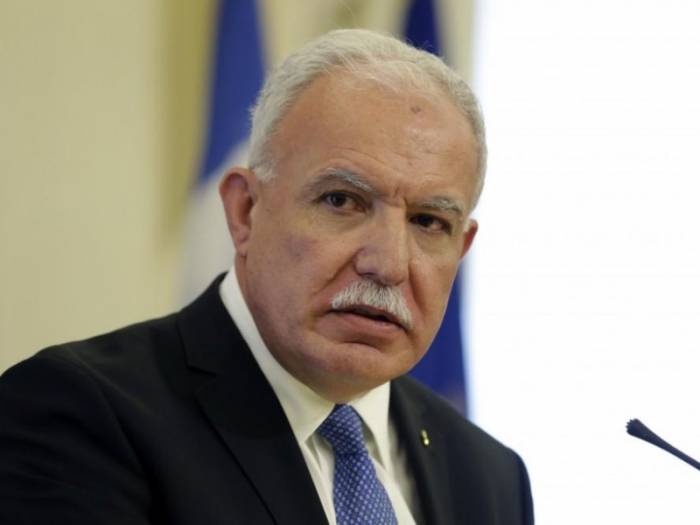
Palestine is considering legal options in case Israel and the U.S. choose to derail negotiations on the Israel-Palestine settlement, Foreign Minister Riyad Maliki told Sputnik in an interview.
Palestine has been seeking a new format of peace talks with broader mediator participation since refusing to let the U.S. remain the sole main mediator following the latter’s recognition of Jerusalem as the capital of Israel.
“We are asking for advice from many internationally recognised legal experts to help us also to focus on different specific legal tracks and to see what we could do in the near future when it comes to this.
“You know, if the negotiations track is closed by the rejection of Israel and the U. S., that means that they are not leaving us with many options but to focus on the legal one,” Maliki said.
Maliki underlined that Palestine has signed over 100 international conventions and agreements containing certain conditions on how member states should or could act.
“We believe will be reviewing all these bylaws of the hundreds of conventions and agreements, we’ll see if we could also utilise them in order also to use them within the legal track also in that sense,” the minister stressed.
According to Maliki, Palestine may ask the International Criminal Court (ICC) to investigate Israel’s settlement activities in the West Bank or could go to the International Court of Justice (ICJ) or courts within different countries to hold Israel accountable for its actions.
“First of all, Israel represents an occupying power, and this is something we should really address maybe through the ICJ.
“When it comes to the criminal actions committed by the Israeli government then we could back to the ICC, when it comes to some actions taken by Israel like trying to sell settlement products then we will go to the European court, or to the national country courts,” he explained.
He also said the Palestinian government does not intend to self-dissolve and hand control of the West Bank and the Gaza Strip to Israel.
On Monday, Nabil Shaath, the foreign affairs adviser of Palestinian President Mahmoud Abbas, told Sputnik that some within the Palestinian National Authority were discussing the option of dissolving the administration of the autonomy and let Israel bear the full brunt of running the occupied West Bank.
“No, you know, the current status of the Palestinian authority was created by Oslo agreements and was supposed to end in 1999 with moving into a full-fledged state.
“This did not happen, so obviously, if we want to move from where we are, we are not talking about a regression to the status, we should really talk about how we can really move closer to the state which was given to us by the UN resolution of Nov. 29, 2012, which says that the state of Palestine is under occupation,” Maliki said.
Commenting on Shaath’s words, the foreign minister stressed that these were referring to the mood of some in the administration who are dissatisfied with the fact that Israel continues to occupy the West Bank but does not pay any of the costs while refusing to move closer to the two-state solution.
“This is really a discussion that continues to be heard within the Palestinian circles just to give back Israel full responsibilities of the occupation and let them really face all this financial and others security challenges,” he said.
The minister said the main objective was nevertheless to “move forward” to declaring a full-fledged Palestinian state.







